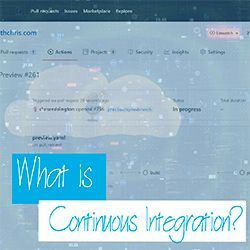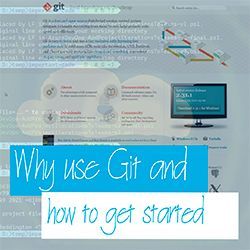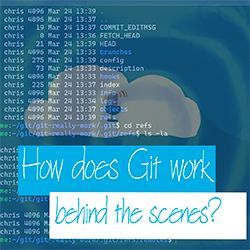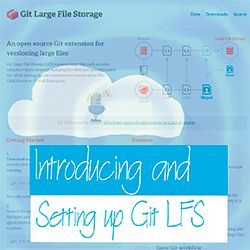Git
Are you now working with source code? Whether that’s Application Code, Infrastructure as Code, Database Schemas or Data Science workbooks as code, you may have heard of a term ‘Continuous Integration’ (CI). This is the process of regularly merging code, and running a series of automated builds/tests/checks to ensure that quality remains high in your production codebase. Find out more in this video.
Episode
Have you ever had a scenario where you need to maintain versions of a set of files? Or have you needed to collaborate on files with colleagues in some way? That’s a common scenario for developers, infrastructure engineers or data scientists/developers. It’s an increasingly common problem. Some people solve this using file shares or FTP Servers with numerous files, v1, v2, v2-final, but that doesn’t scale and is quite a messy approach. Surely there is a better way? That’s where a Version Control System can really help you. One such option is Git. Git is a distributed version control system, which means that rather than relying on a central location to host and store the entire set of files and history, each machine has a full version of the codebase and history locally. This means each user can be productive locally and independently on their own machine. Git is also optimised to be very lightweight and perfomant.
Episode
Have you ever wondered how Git works behind the scenes? We’ll go ahead, initialise an empty folder as a Git repository and explore the .Git folder that is created.
Episode
Have you ever considered storing large binary files in your Git repositories? There are times where you may want to do this, e.g. for my podcast cloudwithchris.com to store my podcast files. Git LFS is an extension to Git which replaces large files with text pointers inside Git. Listen in to find out why you should care, how it works and what it is!
Episode
Chris is the blogger, podcaster, host and producer of his content platform CloudWithChris.com. He uses GitHub to manage, develop, build and deploy it. In this session, Chris explores how GitHub is more than just a Git repository, and how he uses it for his own work:
- GitHub Issues / Projects to plan the content (Blog & Podcast) backlog
- GitHub repositories to version control the website’s source code (and recently open sourced the theme)
- GitHub Codespaces to make changes to the site from any device
- GitHub actions to build/deploy the site, and publish podcast mp3 files
Presentation




